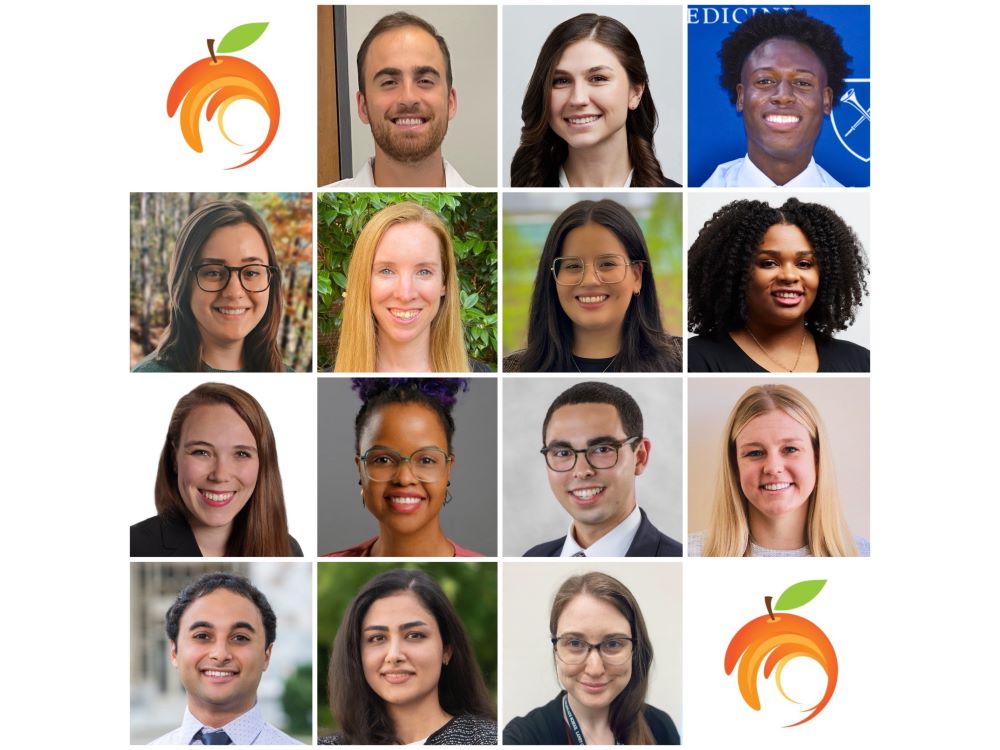Georgia CTSA Develops Diverse Translational Science Workforce with New TL1 Trainees

Georgia Clinical and Translational Science Alliance (Georgia CTSA) is excited to announce the arrival of its newest cohort of trainees to the TL1 Program. This prestigious program is dedicated to fostering excellence in clinical and translational science by providing top-notch training opportunities for both predoctoral and postdoctoral scholars.
The TL1 Program is designed to equip trainees with a comprehensive set of skills necessary for advancing human health through innovative research. This training encompasses both didactic coursework and hands-on research experience. Each trainee will engage in a hypothesis-driven research project that addresses critical questions in human health. Under the mentorship of experienced lead mentors and supportive mentoring teams, these research projects are expected to include a well-defined human component and demonstrate a clear pathway to improving health outcomes.
One of the key objectives of the TL1 Program is to strengthen the clinical and translational science workforce. By nurturing the next generation of leaders in biomedical research, the program aligns with the National Institutes of Health (NIH) mission to advance health through scientific discovery. Georgia CTSA’s commitment to career development and research excellence is integral to its mission of enhancing the impact of clinical and translational science.
Congratulations to the new TL1 trainees as they embark on this transformative journey. Their contributions will not only advance scientific knowledge but also pave the way for meaningful improvements in human health.
Postdoctoral Trainees
Hannah Cebull, PhD, Emory University/Georgia Tech, Dual-Modality Assessment of Residual Type A Aortic Dissections Using CT and 4D Flow MRI
Yarelis Gonzalez-Vargas, PhD, Georgia Tech, Towards a Precision Medicine Approach for the Study and Management of Pediatric Vascular Anomalies
Sadie Mason, MD, Emory University, Investigating the access to, and impact of, hematopoietic cell transplant on morbidity of children with sickle cell disease
Nicole Mavingire, PhD, Morehouse School of Medicine, The Effect of Diabetes as a Comorbidity on Tumor Response to Anti-HER2 Agents in Prostate Cancer
Joshua Muniz, MD, Emory University, Using Patient and Neighborhood Characteristics to Predict Frontline Therapeutic Clinical Trial Enrollment in Adolescent and Young Adult (AYA) Hematologic Malignancy Populations in Affiliated Pediatric and Adult Centers
Kailey Oppat, MD, Emory University, A novel combination immunotherapy approach for colorectal cancer liver metastases
Parisa Sarikhani, PhD, Georgia Tech, Biophysical modeling of subcallosal cingulate cortex to advance closed-loop deep brain stimulation
Predoctoral Trainees
Zachary Bernstein, Emory University, Social Determinants of Neuropsychological Outcomes and Quality of Life Following Pediatric Epilepsy Surgery
Sarah Blaine, Emory University, Heteroresistance prevalence, risk factors, and genetic mechnisms in urinary Escherichia coli
Kahsavyah Buckley, Emory University, Sarcopenia and Fraility in Persons Living with HIV Using Integrase Strand-Transfer Inhibitors (INSTis)
Denise Fahey, University of Georgia, Plac8-mediated regulation of intestinal inflammation
Jadah Keith, Emory University, Impact of Feminizing Hormone Therapy on Rectal Mucosal HIV Target Cells in Thai TGWSM
Maher Saadeh, Emory University/Georgia Tech, 3D Bioprinted Pulmonary Artery Model for Williams Syndrome Vascular Pathology
Tara Urner, Emory University/Georgia Tech, Noninvasive optical assessment of microvascular blood flow waveforms a novel biomarker of cerebrovascular health